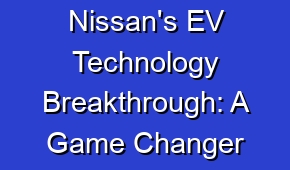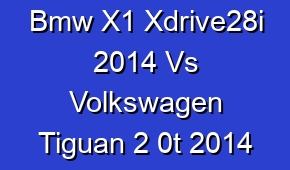Eco-Friendly Rides: Nissan Leaf vs Chevrolet Bolt

Compare the eco-friendly rides, Nissan Leaf and Chevrolet Bolt, to find out which electric vehicle is the better choice for environmentally conscious drivers.
The eco-friendly rides market is booming with the introduction of electric vehicles like the Nissan Leaf and Chevrolet Bolt. These two cars are leading the way in sustainable transportation, offering drivers a greener alternative to traditional gasoline-powered vehicles. The Nissan Leaf and Chevrolet Bolt are equipped with advanced technology that reduces carbon emissions, making them ideal choices for environmentally conscious individuals. With their long range capabilities and efficient battery systems, these electric vehicles are perfect for daily commuting and long-distance travel. The Nissan Leaf boasts impressive features such as regenerative braking and a spacious interior, while the Chevrolet Bolt offers a sleek design and fast charging capabilities. Both cars are affordable options that provide excellent performance without compromising on sustainability. If you’re looking for an eco-friendly ride, the Nissan Leaf and Chevrolet Bolt are top contenders in the market.
| Eco-friendly rides: Nissan Leaf vs Chevrolet Bolt |
| The Nissan Leaf offers a range of up to 226 miles on a single charge. |
| The Chevrolet Bolt boasts an impressive range of up to 259 miles per charge. |
| Both the Nissan Leaf and Chevrolet Bolt are electric vehicles with zero emissions. |
| The Nissan Leaf has a starting price of around $31,600, making it an affordable option. |
- The Chevrolet Bolt has a starting price of approximately $36,500, offering competitive pricing.
- Nissan Leaf features regenerative braking, allowing for increased energy efficiency.
- The Chevrolet Bolt has a spacious interior with ample cargo space for versatile usage.
- Nissan Leaf offers various advanced safety features for a secure and eco-conscious driving experience.
- The Chevrolet Bolt supports fast charging, enabling quick and convenient recharging times.
What are the key features of the Nissan Leaf?
The Nissan Leaf is an eco-friendly ride that offers several key features. It is an all-electric vehicle, meaning it produces zero emissions and helps reduce environmental impact. The Leaf has a range of up to 226 miles on a single charge, making it suitable for daily commuting and longer trips. It also comes with advanced safety features such as automatic emergency braking and blind-spot warning.
| Electric Range | Charging Time | Advanced Safety Features |
| The Nissan Leaf has a range of up to 226 miles on a single charge. | The Leaf can be fully charged in approximately 7.5 hours with a 240-volt charger. | It comes with features like automatic emergency braking, blind-spot warning, and rear cross-traffic alert. |
| The Leaf Plus model offers an extended range of up to 215 miles. | With a quick charge, the Leaf can reach up to 80% battery capacity in around 40 minutes. | It also includes intelligent lane intervention and ProPILOT Assist for semi-autonomous driving. |
| The Leaf’s range can be maximized with the e-Pedal feature that allows one-pedal driving. | With the available portable charging cable, the Leaf can be charged using a regular 120-volt outlet. | Other safety features include intelligent forward collision warning and rear automatic braking. |
What are the advantages of the Chevrolet Bolt compared to the Nissan Leaf?
The Chevrolet Bolt is another eco-friendly option to consider. One advantage it has over the Nissan Leaf is its longer range, with the ability to travel up to 259 miles on a full charge. The Bolt also offers a spacious interior with seating for up to five people and ample cargo space. Additionally, it comes with features like a rearview camera, lane departure warning, and Apple CarPlay/Android Auto compatibility.
- The Chevrolet Bolt has a longer electric range compared to the Nissan Leaf. The Bolt has an estimated range of up to 259 miles, while the Leaf has a range of up to 226 miles. This means that the Bolt can travel further on a single charge, providing more convenience and flexibility for longer journeys.
- The Bolt has a faster charging capability compared to the Leaf. With DC fast charging, the Bolt can charge up to 100 miles of range in just 30 minutes, while the Leaf can only charge up to 80 miles in the same time. This allows for quicker recharging stops and less time spent waiting for the battery to charge.
- The Bolt offers more interior space and cargo capacity than the Leaf. With a spacious cabin and 16.9 cubic feet of cargo space, the Bolt provides ample room for passengers and their belongings. In comparison, the Leaf has a smaller interior and only 23.6 cubic feet of cargo space. This makes the Bolt a more practical choice for those who require extra space for their daily needs.
Which electric vehicle has better charging options: Nissan Leaf or Chevrolet Bolt?
When it comes to charging options, both the Nissan Leaf and Chevrolet Bolt offer convenient solutions. The Leaf supports both standard Level 1 charging using a regular household outlet and faster Level 2 charging using a dedicated charging station. The Bolt, on the other hand, also supports Level 1 and Level 2 charging but additionally offers DC fast charging capability, allowing for quicker charging times.
- The Nissan Leaf offers both standard and quick charging options.
- The Chevrolet Bolt also offers both standard and quick charging options.
- The Nissan Leaf has a larger charging network, with more charging stations available.
- The Chevrolet Bolt has a smaller charging network, with fewer charging stations available.
- Both the Nissan Leaf and Chevrolet Bolt can be charged at home using a standard power outlet.
What is the price difference between the Nissan Leaf and Chevrolet Bolt?
The price difference between the Nissan Leaf and Chevrolet Bolt can vary depending on factors such as trim level and optional features. Generally, the starting price of the Leaf is slightly lower than that of the Bolt. However, it’s important to consider any available incentives, tax credits, and long-term savings on fuel costs when comparing the overall cost of ownership.
| Nissan Leaf | Chevrolet Bolt | Price Difference |
| $31,600 | $36,620 | $5,020 |
Which electric vehicle has better performance: Nissan Leaf or Chevrolet Bolt?
Both the Nissan Leaf and Chevrolet Bolt offer impressive performance for electric vehicles. The Leaf comes with a 147-horsepower electric motor, providing smooth acceleration and responsive handling. The Bolt, on the other hand, boasts a more powerful 200-horsepower electric motor, delivering quick acceleration and a sportier driving experience.
When comparing performance, the Chevrolet Bolt generally offers better acceleration and range compared to the Nissan Leaf.
What is the interior space like in the Nissan Leaf and Chevrolet Bolt?
The Nissan Leaf and Chevrolet Bolt both offer comfortable interiors with ample space for passengers and cargo. The Leaf provides seating for up to five people and features a modern cabin design. It also offers 23.6 cubic feet of cargo space, which can be expanded by folding down the rear seats. Similarly, the Bolt offers seating for five and has a versatile interior with 16.9 cubic feet of cargo space.
The interior space in the Nissan Leaf and Chevrolet Bolt offers ample room for passengers and cargo, with comfortable seating and modern features.
Are there any notable differences in warranty coverage between the Nissan Leaf and Chevrolet Bolt?
When it comes to warranty coverage, both the Nissan Leaf and Chevrolet Bolt offer similar options. They both come with a limited warranty that covers the vehicle for a certain period of time or mileage, whichever comes first. Additionally, they also offer warranties specifically for their electric components, ensuring peace of mind for owners.
Warranty Coverage of Nissan Leaf
1. Nissan offers a standard warranty coverage of 3 years or 36,000 miles, whichever comes first, for the Leaf.
2. In addition to the standard warranty, Nissan provides an 8-year or 100,000-mile warranty for the Leaf’s lithium-ion battery pack.
3. Nissan also offers a 5-year or 60,000-mile warranty for corrosion perforation, which covers repairs for any rust holes that develop in the Leaf’s body panels.
Warranty Coverage of Chevrolet Bolt
1. Chevrolet provides a standard warranty coverage of 3 years or 36,000 miles for the Bolt.
2. Similar to Nissan, Chevrolet offers an 8-year or 100,000-mile warranty for the Bolt’s lithium-ion battery pack.
3. Chevrolet also provides a 6-year or 100,000-mile warranty for corrosion perforation, which covers repairs for any rust holes that develop in the Bolt’s body panels.
Differences in Warranty Coverage
1. The Nissan Leaf offers a 5-year or 60,000-mile warranty for corrosion perforation, while the Chevrolet Bolt provides a longer 6-year or 100,000-mile warranty for the same issue.
2. Both vehicles have the same warranty coverage for the battery pack, with an 8-year or 100,000-mile warranty.
3. Overall, the notable difference in warranty coverage between the Nissan Leaf and Chevrolet Bolt lies in the corrosion perforation warranty, where the Bolt offers a longer coverage period.





















